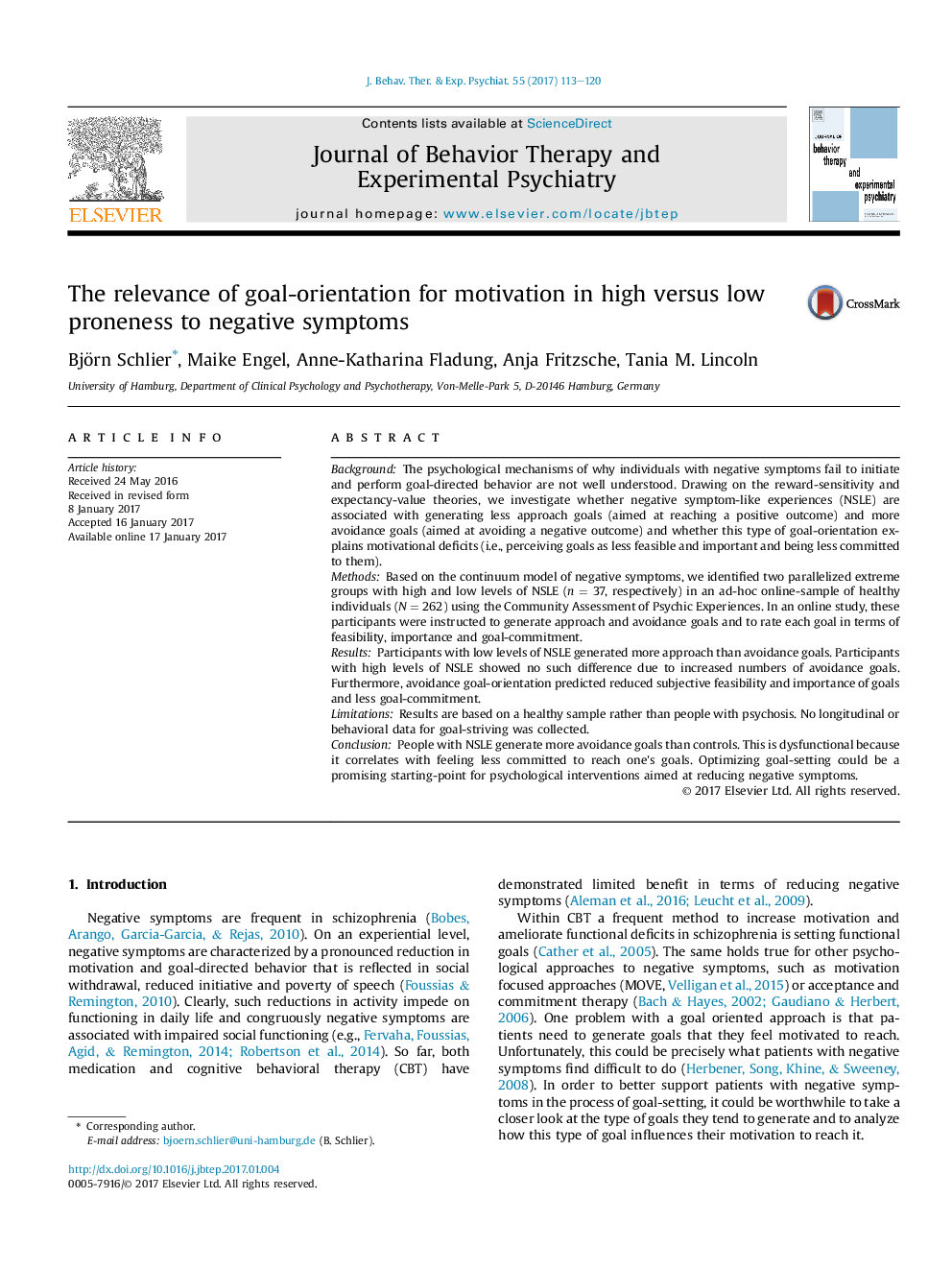| کد مقاله | کد نشریه | سال انتشار | مقاله انگلیسی | نسخه تمام متن |
|---|---|---|---|---|
| 5039060 | 1473061 | 2017 | 8 صفحه PDF | دانلود رایگان |
- High levels of negative symptoms are associated with setting more avoidance goals.
- Avoidance goals are less feasible, less important, and people commit less to them.
- The associations remained stable when depression was controlled for.
- A goal-setting framework for motivation deficits in negative symptoms is proposed.
BackgroundThe psychological mechanisms of why individuals with negative symptoms fail to initiate and perform goal-directed behavior are not well understood. Drawing on the reward-sensitivity and expectancy-value theories, we investigate whether negative symptom-like experiences (NSLE) are associated with generating less approach goals (aimed at reaching a positive outcome) and more avoidance goals (aimed at avoiding a negative outcome) and whether this type of goal-orientation explains motivational deficits (i.e., perceiving goals as less feasible and important and being less committed to them).MethodsBased on the continuum model of negative symptoms, we identified two parallelized extreme groups with high and low levels of NSLE (n = 37, respectively) in an ad-hoc online-sample of healthy individuals (N = 262) using the Community Assessment of Psychic Experiences. In an online study, these participants were instructed to generate approach and avoidance goals and to rate each goal in terms of feasibility, importance and goal-commitment.ResultsParticipants with low levels of NSLE generated more approach than avoidance goals. Participants with high levels of NSLE showed no such difference due to increased numbers of avoidance goals. Furthermore, avoidance goal-orientation predicted reduced subjective feasibility and importance of goals and less goal-commitment.LimitationsResults are based on a healthy sample rather than people with psychosis. No longitudinal or behavioral data for goal-striving was collected.ConclusionPeople with NSLE generate more avoidance goals than controls. This is dysfunctional because it correlates with feeling less committed to reach one's goals. Optimizing goal-setting could be a promising starting-point for psychological interventions aimed at reducing negative symptoms.
Journal: Journal of Behavior Therapy and Experimental Psychiatry - Volume 55, June 2017, Pages 113-120
